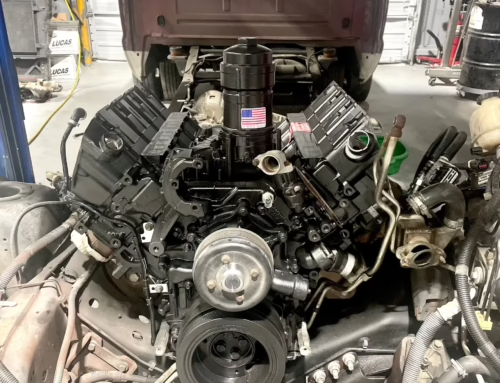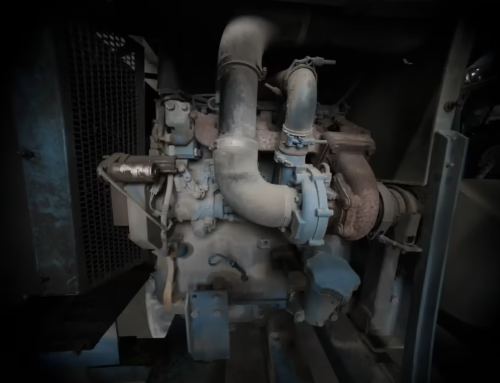Heavy Duty Truck Fluids – Costs Benefits
Choosing the right vehicle fluids is one of the most critical aspects of your heavy-duty truck or fleet in top shape. From synthetic oils to coolants and transmission fluids, each plays a vital role in your truck’s longevity, performance, and fuel economy. Understanding the costs, benefits, and ROI (Return on Investment) of these fluids can make a world of difference, especially for fleet managers or owner-operators looking to stretch their maintenance budgets.
The Case for Premium Fluids
The first question many ask is, “Is using premium fluids worth it?” The short answer: Yes. While high-quality fluids often come with a higher upfront cost, their long-term benefits far outweigh the initial investment. Synthetic oils, premium coolants, and high-performance gear oils are designed to reduce wear and tear, improve fuel efficiency, and extend the lifespan of critical components.
Synthetic Oil vs. Conventional Oil
One of the biggest decisions you’ll face when servicing a heavy-duty truck is whether to opt for synthetic oil or conventional oil. While synthetic oil may cost up to twice as much as conventional oil per gallon, its benefits are hard to overlook.
- Better Lubrication: Synthetic oils flow better in cold temperatures and provide superior protection in extreme heat, making them ideal for long-haul and all-weather operations.
- Extended Oil Change Intervals: You can typically go twice as long between oil changes when using synthetic oil. Instead of 5,000 miles, synthetic oil can last up to 15,000 miles or more in some cases.
- Lower Engine Wear: Synthetic oils have fewer impurities, which leads to less engine sludge and longer engine life. That means fewer repairs and a truck that stays on the road instead of in the shop.
At first glance, spending an extra per oil change might seem excessive, but consider the long-term savings. If you’re doubling your oil change intervals and reducing engine wear, the savings on oil, filters, and potential engine rebuilds make the additional cost of synthetic oil worthwhile. Plus, a more efficient engine means better fuel economy, which translates to lower fuel costs over time.
Benefits Transmission Fluids
Your transmission is one of the most critical components in a heavy-duty truck, and it requires the right fluids to keep it running smoothly. Transmission oil, whether for a manual or automatic transmission, is designed to lubricate gears, reduce friction, and prevent overheating. Replacing or repairing a transmission can cost thousands, but regularly changing out transmission fluid ensures that internal components stay lubricated and cool, reducing the likelihood of failure.
Automatic vs. Manual Transmission Fluids
- Automatic Transmission Fluid (ATF): Designed to handle the intense heat and pressure that come with automatic gear shifting. ATF also includes detergents to keep your transmission clean, reducing wear.
- Manual Transmission Fluid: Often called gear oil, this thicker lubricant is designed to handle the unique stress of manual shifting, providing additional protection for gears and other moving parts.
Healthy Engines With Truck Coolant
Cooling is another vital aspect of any heavy-duty vehicle’s performance. If your engine coolant fails, you’re at risk for overheating, head gasket failures, or worse—complete engine failure. Premium coolants are designed to last longer and perform better under harsh conditions compared to standard options.
The Role of Coolant in Heavy-Duty Engines
Coolant, also known as antifreeze, circulates through your engine to absorb heat and dissipate it through the radiator. High-quality coolants often have corrosion inhibitors that prevent the build-up of rust and scale in your engine and cooling system. Long-life coolants can last up to five years or 600,000 miles, whereas conventional coolants may only last two years or 100,000 miles. The extended lifespan of long-life coolant reduces maintenance costs and the downtime associated with frequent coolant changes, offering a solid return on investment.
Hydraulic Fluids
For trucks that use hydraulic systems (think: dump trucks, cranes, or bucket trucks), keeping those systems running smoothly requires the right hydraulic fluid. Hydraulic fluid transfers power lubricates components, and provides heat transfer, making it essential to any system that relies on the pressurized liquid to function.
Choosing the Right Hydraulic Fluid
Hydraulic fluids come in a variety of types, but heavy-duty trucks often require high-viscosity index fluids that can handle a wide range of temperatures. These fluids are specially formulated to maintain consistent performance whether you’re operating in freezing cold or scorching heat. By using high-quality fluids and changing them regularly, you reduce the risk of system failure and expensive downtime.
DEF (Diesel Exhaust Fluid): Cleaner Emissions, Fewer Repairs
With modern trucks, emissions standards are higher than ever. Diesel Exhaust Fluid (DEF) plays a key role in reducing the nitrogen oxide (NOx) emissions your truck produces. DEF works with the Selective Catalytic Reduction (SCR) system to convert harmful NOx emissions into harmless nitrogen and water vapor.
The Importance of DEF in Diesel Trucks
If your DEF levels run low, your truck could enter limp mode, dramatically reducing performance and possibly leading to engine derating. DEF is a regulatory requirement, and failing to maintain your levels can also lead to hefty fines. DEF is relatively inexpensive compared to potential fines for non-compliance or repairs if the system malfunctions. Keeping your DEF levels topped off ensures compliance with emissions standards and avoids costly engine or exhaust system repairs down the line.
The Long-Term Benefits of Quality Fluids
When it comes to heavy-duty vehicle fluids, spending more upfront often leads to significant savings down the line. From extending the life of your engine with synthetic oils to ensuring optimal performance of your transmission and cooling system, the right fluids protect your truck from costly repairs, reduce downtime, and improve overall efficiency.
Investing in high-quality fluids doesn’t just benefit your truck—it boosts your bottom line. With Rhino Truck Lube Centres it’s clear that quality fluids lead to fewer repairs, longer intervals between maintenance, and more time spent on the road, not in the shop. Get in touch with Rhino Truck Lube Centres to keep your truck in optimal condition. For more information, check out our article about vehicle filters.




